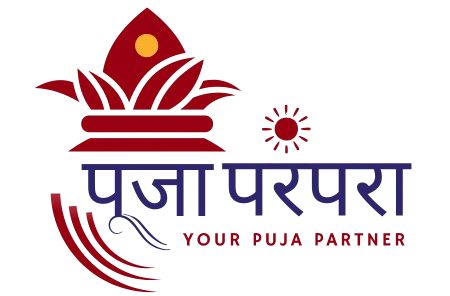Honoring Our Ancestors and Its Karmic Effects
In the heart of Hindu tradition lies a timeless truth — we are not alone in our journey of life. Behind each of us stands a long line of ancestors whose blessings, actions, and sacrifices influence our present. Shraddha and Pitru Puja are sacred rites that allow us to recognize, honor, and repay this ancestral debt, known in Sanskrit as Pitru Runa.
But beyond ritual and belief, there’s a spiritual science at play — a deeply karmic and energetic process that affects our lives in more ways than we realize.
Let’s explore why we perform Shraddha and Pitru Puja, how they influence our karma, and the hidden spiritual truths behind these powerful ceremonies.
What is Shraddha and Pitru Puja?
Shraddha is a Vedic ritual of offering food, water, prayers, and remembrance to deceased ancestors, especially during the lunar period known as Pitru Paksha. The word “Shraddha” comes from shraddha (faith) and da (to give) — it literally means “an offering made with faith.”
Pitru Puja, on the other hand, refers more broadly to all rituals that aim to honor the Pitrs (ancestral spirits). This includes Tarpan (water offerings), Pinda Daan (rice ball offerings), and mantra recitations that ease the soul’s journey in the afterlife.
The Spiritual Science Behind Ancestor Worship
1. We Carry Ancestral Karma
Our DNA doesn’t just carry physical traits — it carries karmic impressions too. According to Vedic philosophy, every soul leaves behind energetic imprints. Unresolved desires, blessings, or suffering of our ancestors can manifest in our lives as opportunities, obstacles, or patterns.
When we perform Shraddha, we acknowledge this connection and offer energy to help their soul rest in peace. In turn, this act balances ancestral karma and paves the way for progress in our own journey.
2. Offering Nourishment to Subtle Bodies
In the realm of the departed, souls exist in a subtle, non-physical form. They no longer have access to the food and water we consume. Through Shraddha and Pinda Daan, we create an energetic channel that allows the Pitrs to receive nourishment through sacred intention and mantra.
Just as a battery needs charging, these offerings recharge the spiritual energy of the ancestral plane.
3. Ensuring Smooth Transition of Souls
In many cases, souls remain trapped between worlds due to unfulfilled desires, sudden deaths, or a lack of rituals. These unsettled souls (Preta) may create energetic disturbances in the family lineage.
Pitru Puja acts like a spiritual cleansing — helping such souls transition peacefully into higher realms (Pitru Loka or beyond), thus restoring balance and harmony in the family.
The Karmic Cycle of Giving and Receiving
According to the Garuda Purana, every human being is born with three debts:
- Deva Rina – Debt to the gods
- Rishi Rina – Debt to sages and teachers
- Pitru Rina – Debt to ancestors
We repay Pitru Rina by continuing their lineage, preserving family values, and performing Shraddha. When we do this, we release blocked blessings and clear karmic debt, which may be unknowingly holding us back in areas like:
- Health
- Finances
- Marriage and childbirth
- Mental peace
- Spiritual progress
When and How Do We Perform Shraddha?
The most significant period for ancestral rituals is Pitru Paksha, the 15 days in the lunar month of Bhadrapada (September–October). People also perform Shraddha on:
- Tithi of the ancestor’s death (according to the lunar calendar)
- Amavasya (new moon)
- Solar or lunar eclipses
- Mahalaya Amavasya (final day of Pitru Paksha)
The basic process includes:
- Tarpan – Offering water with sesame seeds and sacred chants
- Pinda Daan – Offering rice balls mixed with ghee, honey, and black sesame
- Homa or Havan – Fire offerings with mantras for peace of the soul
- Feeding Brahmins or the poor – Seen as symbolic feeding of the ancestors
Why Shraddha is Not Just Ritual but Responsibility
Many people ask: “If my ancestors have already moved on, why perform these rites?”
The answer lies in intention. Just as lighting a lamp in a temple doesn’t only illuminate the room, but connects us to the divine, Shraddha uplifts both the giver and the receiver. Even if the soul has attained liberation, the act of remembrance generates punya (spiritual merit) and blesses the lineage.
It also teaches the next generation about gratitude, duty, and spiritual accountability.
Visible and Invisible Benefits of Shraddha and Pitru Puja
When done with faith and purity, these rituals:
- Bring inner peace and clarity
- Resolve recurring family problems
- Heal generational wounds
- Boost mental and emotional well-being
- Improve fertility, career growth, and harmony at home
- Strengthen one’s spiritual path and meditation
Some people report sudden relief from anxiety, or a shift in family fortunes after performing a sincere Shraddha. That’s the unseen power of ancestral grace.
Final Thoughts: A Bridge Between Worlds
Shraddha and Pitru Puja aren’t about mourning the dead — they are about celebrating the eternal bond of love that transcends lifetimes. When we honor our ancestors, we strengthen our roots. We become the bridge between the past and the future, and in doing so, we raise the spiritual vibration of our entire family tree.
So the next time you light that diya, chant that mantra, or offer that handful of rice — remember, your ancestors are listening. And they are smiling.
Are you planning to perform a Shraddha or Pitru Puja?
Pujaparampara can assist with experienced priests, proper rituals, and guidance tailored to your family traditions. Connect with us today for a spiritually enriching experience.
